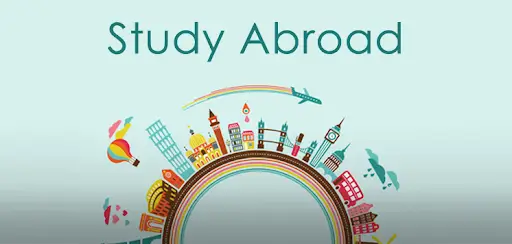- EasyCard
- Trade
- Help
- Announcement
- Academy
- SWIFT Code
- Iban Number
- Referral
- Customer Service
- Blog
- Creator
US Study Abroad Exclusive Revealed, Conditions, Application Process, and Fees Revealed! Master it now, worry-free studying abroad!
Want to make a name for yourself on the world stage? Studying in the US may be your springboard! Every year, thousands of dreamy students choose US universities, where world-renowned education, innovative teaching, and rich and colorful campus life are waiting for you to explore. Below, we will reveal in detail how to enter the door of top US universities and help you easily plan your study abroad journey!

What conditions are required?
If you plan to study abroad in the US, you need to understand and meet some important requirements. Here is an overview of the key requirements:
Educational background
Undergraduate applicants usually need to complete high school education; graduate applicants must complete an undergraduate degree. In some cases, outstanding undergraduate students can directly apply for doctoral programs.
Academic achievements
For undergraduate applications, schools usually require high school transcripts and may require SAT or ACT scores; for graduate applications, universities will review your undergraduate transcripts, GPA, and standardized test scores such as GRE or GMAT.
Practical experience
Participating in extracurricular activities, community service, research projects, or internships will earn extra points. These experiences demonstrate your leadership, commitment, and practical skills.
Language ability
Applicants, whether undergraduate or graduate, usually need to prove their English proficiency through exams such as TOEFL or IELTS to meet the minimum score requirements of the school.
Personal statement and recommendation letter
A personal statement needs to explain your academic background, career goals, and reasons for choosing this major, showcasing your personality and unique perspective. Three recommendation letters are usually required, written by professors or direct supervisors at work, detailing your academic abilities and personal qualities.
Economic conditions
You need to demonstrate sufficient financial support for tuition and living expenses, usually through a bank Certificate Of Deposit, scholarship notice, or sponsor guarantee. If the funds come from family or personal support, financial proof from the sponsor is required.
How to apply?
The preparation process for studying in the US may sound daunting, but don’t worry, it’s actually quite straightforward step by step.
Firstly, choosing the right school and major is crucial. You can learn about the characteristics and strengths of different schools and majors through the school’s official website, education exhibitions, or rankings.
Secondly, gather all the required documents mentioned earlier, including transcripts, exam scores, personal statements, and recommendation letters.
Then comes the application submission stage.
Before submitting, please confirm the application deadline again to ensure that all materials can be submitted before the deadline. Submitting your application late may affect your chances of admission.
Most US universities accept online applications. Visit the school’s official application website, create a personal account, follow the instructions to gradually complete the application form and upload relevant documents.
If the application materials pass the initial screening, some schools may require an interview to gain a deeper understanding of the applicant. The interview may be conducted via video or phone, and preparation should focus on possible questions such as personal background, academic interests, and future career plans.
How much does it cost?
Studying in the US, the cost is definitely a concern for everyone. The cost differences brought by different choices are not small. Understanding these costs can help you better plan your budget and prepare.
Private tuition vs public tuition
Public universities generally have lower tuition fees, with an average annual tuition fee of about 20,000 to 40,000 US dollars, especially for residents of the state. However, for international students, tuition fees are not much cheaper than private universities; private universities do not have government subsidies and rely entirely on tuition and donations to maintain, so tuition fees are relatively high, usually between 50,000 and 70,000 US dollars.
Life expenses
The cost of on-campus housing is about $8,000 to $15,000 a year, while off-campus rentals vary by region, and may be higher in big cities such as New York or San Francisco. Daily living expenses include meals, transportation, and entertainment, and the annual cost is about $10,000 to $20,000, depending on your lifestyle and spending habits.
Other necessary expenses
Medical insurance is very important and necessary. The annual insurance premium is about $1,000 to $2,000. Miscellaneous expenses include books, personal items, etc., which usually require preparation of several thousand dollars per year.
BiyaPay cross-border remittance to US
Understanding the options for cross-border remittances is crucial when planning a budget for studying abroad in the US. BiyaPay provides a convenient solution that supports real-time exchange rate queries and exchanges for more than 30 legal currencies and more than 200 digital currencies, with low transaction fees, allowing for instant cross-border remittances and unlimited amounts.
Study visa is essential
Preparing to study in the US, getting a visa is the first step you must take. Remember to apply for a visa.
Visa type
The F-1 visa is for students studying undergraduate, graduate, or other academic programs; if you are an exchange student or visiting scholar, you may need a J-1 visa.
Application steps
First, fill out the DS-160 online, which is a required form for applying for a US visa.
Don’t forget to pay the visa fee after filling out the form.
After paying the fee, you can make an appointment for an interview, usually at the US embassy or consulate.
Prepare your passport, admission letter and financial proof.
Interview Tips
During the interview, clearly state your study plan and future goals; let the visa officer see that you are passionate about the upcoming study life in the US; finally, answer the visa officer’s questions honestly and directly.
Above is all the relevant introduction to studying abroad in the US. Wishing everyone a smooth study abroad journey!
*This article is provided for general information purposes and does not constitute legal, tax or other professional advice from BiyaPay or its subsidiaries and its affiliates, and it is not intended as a substitute for obtaining advice from a financial advisor or any other professional.
We make no representations, warranties or warranties, express or implied, as to the accuracy, completeness or timeliness of the contents of this publication.




Contact Us
Company and Team
BiyaPay Products
Customer Services
is a broker-dealer registered with the U.S. Securities and Exchange Commission (SEC) (No.: 802-127417), member of the Financial Industry Regulatory Authority (FINRA) (CRD: 325027), member of the Securities Investor Protection Corporation (SIPC), and regulated by FINRA and SEC.
registered with the US Financial Crimes Enforcement Network (FinCEN), as a Money Services Business (MSB), registration number: 31000218637349, and regulated by FinCEN.
registered as Financial Service Provider (FSP number: FSP1007221) in New Zealand, and is a member of the Financial Dispute Resolution Scheme, a New Zealand independent dispute resolution service provider.



















